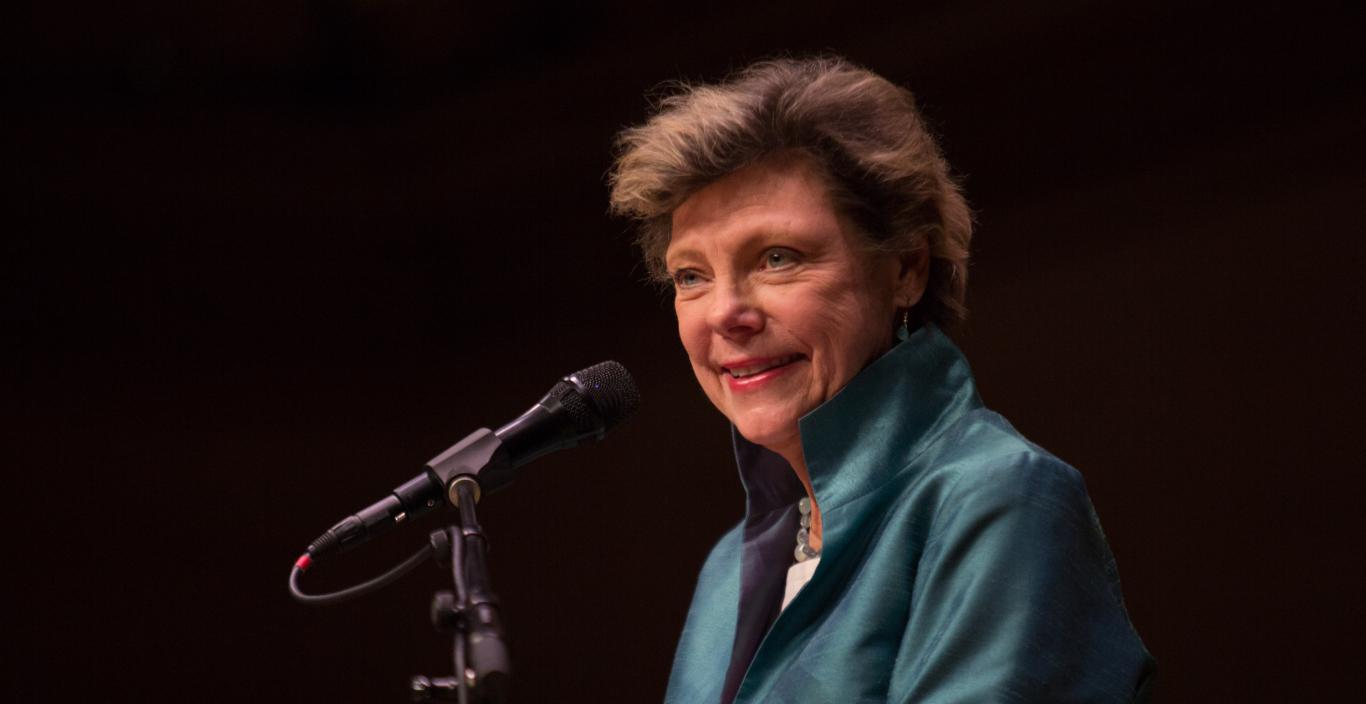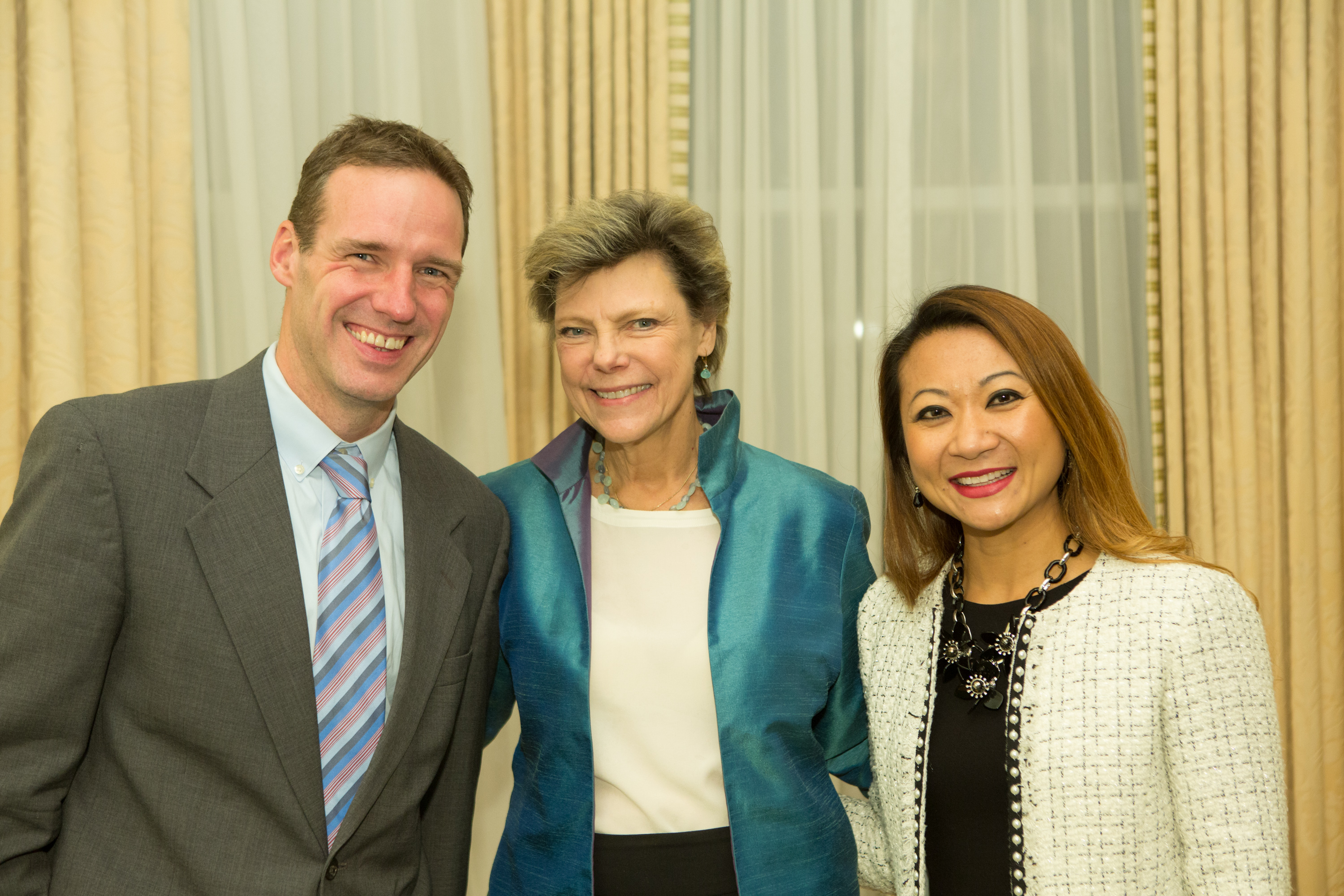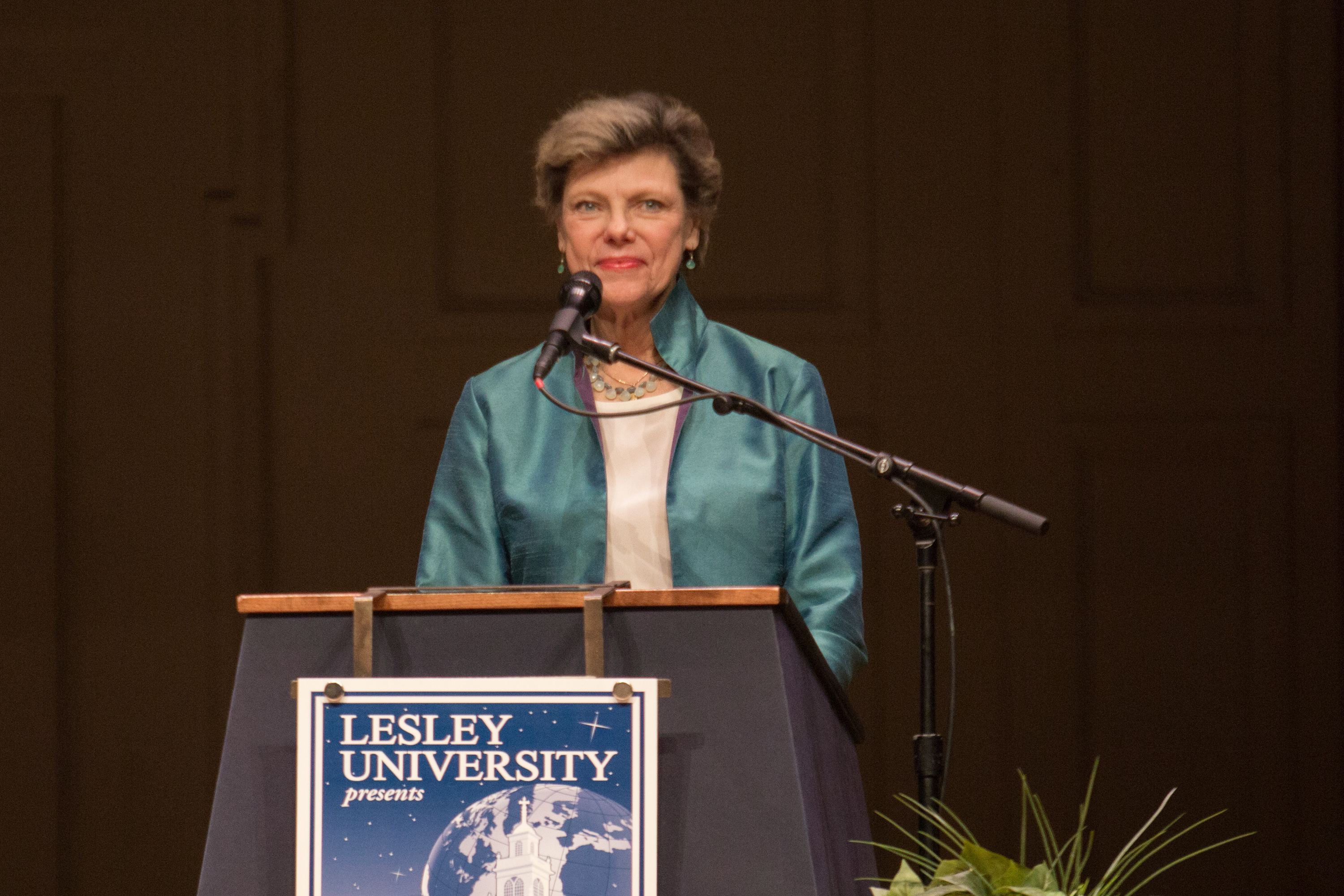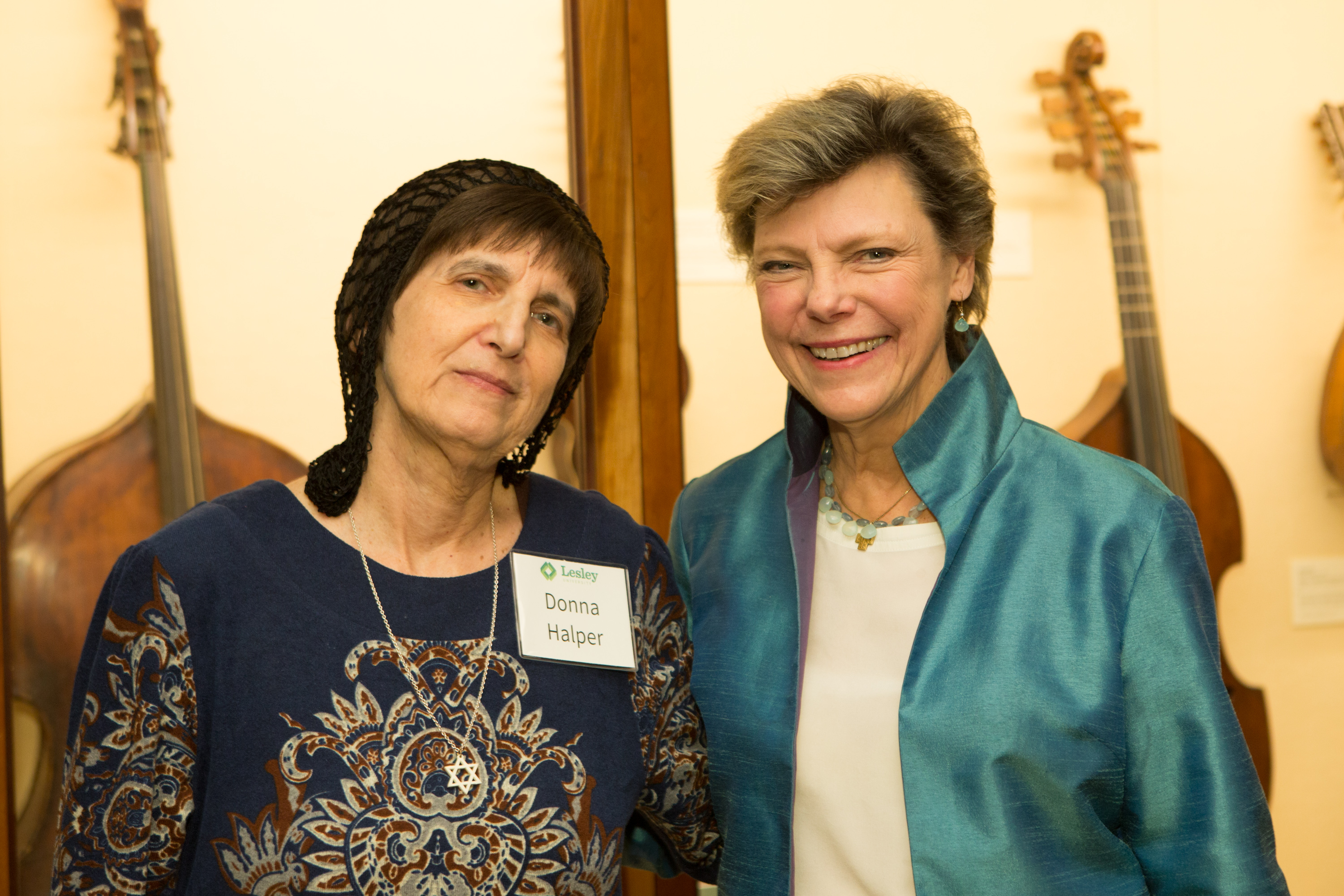Journalist Cokie Roberts warned the crowd that she wouldn’t be as uplifting as the classical music concerts that typically grace the Boston Symphony Hall stage, but she prompted some laughs amid grim observations on the state of American politics and discourse.
The Lesley University Boston Speaker Series welcomed Roberts on Wednesday evening to a packed house in the historic concert hall. The three-time Emmy Award-winning journalist covered dozens of topics during her lecture and Q&A, touching on everything from fake news and bipartisanship to the Electoral College and First Lady Melania Trump, as well as her predictions on the tax reform proposal and controversial Senate candidate Roy Moore’s campaign.
(View more photos from the event.)
She began on a light note, with recollections of trips to Bourbon Street in New Orleans to visit her mother, longtime Louisiana Congresswoman Lindy Boggs, who later moved to Rome when President Clinton appointed her ambassador to the Vatican in 1997.
“When my children were young we would walk past the strippers and the other neighbors. ‘Over the river and through the woods,’” quipped Roberts. “She moved to the Vatican and said the costumes didn’t change. She still saw guys in dresses.”
Reflecting on her decades in journalism and her “front row seat to history,” the longtime National Public Radio and ABC News commentator mused that “we really are in uncharted waters.”
“We live by Tweets,” said Roberts. “As a reporter, you need to wake up at six and check the Twitter feed. That has never happened before.”
She said the mainstream media is obliged to cover it all – like when the President refers rudely to Pocahontas in front of Navajos or re-Tweets virulent anti-Muslim Tweets – but the coverage can’t be at the peril of other news.
“Is the president just waving a bright shiny object in front of us to distract us?” she posed. “But I don’t think you can ignore that.”
Polarization is poisoning politics
While she sees echoes to darker times in U.S. history, Roberts said this is not the most polarizing time the country has weathered.
“The most polarizing time ever was the period right before the Civil War,” said Roberts. “Thank god we have no major issue before us today, a huge moral issue. There can be nothing like slavery.”
What’s similar is the failure of politics, which is crippling the nation, she said.
“The Civil War was such a failure of politics. That’s what politics is supposed to do. It’s supposed to get us there” to a resolution, said Roberts. “Right now, it’s very hard to get there.”
Roberts lamented the waning number of moderate politicians, the rise of gerrymandered redistricting, the permanent campaigning and fundraising that elected representatives must engage in, and even the shift in the way some legislators no longer relocate to Washington or bring their families – robbing each other of the opportunity to know and like each other.
She recalled that a childhood best friend of hers was the daughter of a Republican congressman, while Roberts’ father, Hale Boggs, was a Democratic congressman.
“You can’t demonize somebody who is playing ‘Clue’ in your basement,” she said. Now “they live in their offices, which is fundamentally disgusting. That’s frat boy behavior.”
Roberts said that the days when House and Senate members from opposing parties would argue at the Press Club and still remain friends are over.
“That is gone,” she said. “Nothing like that even vaguely exists in Washington now.”



